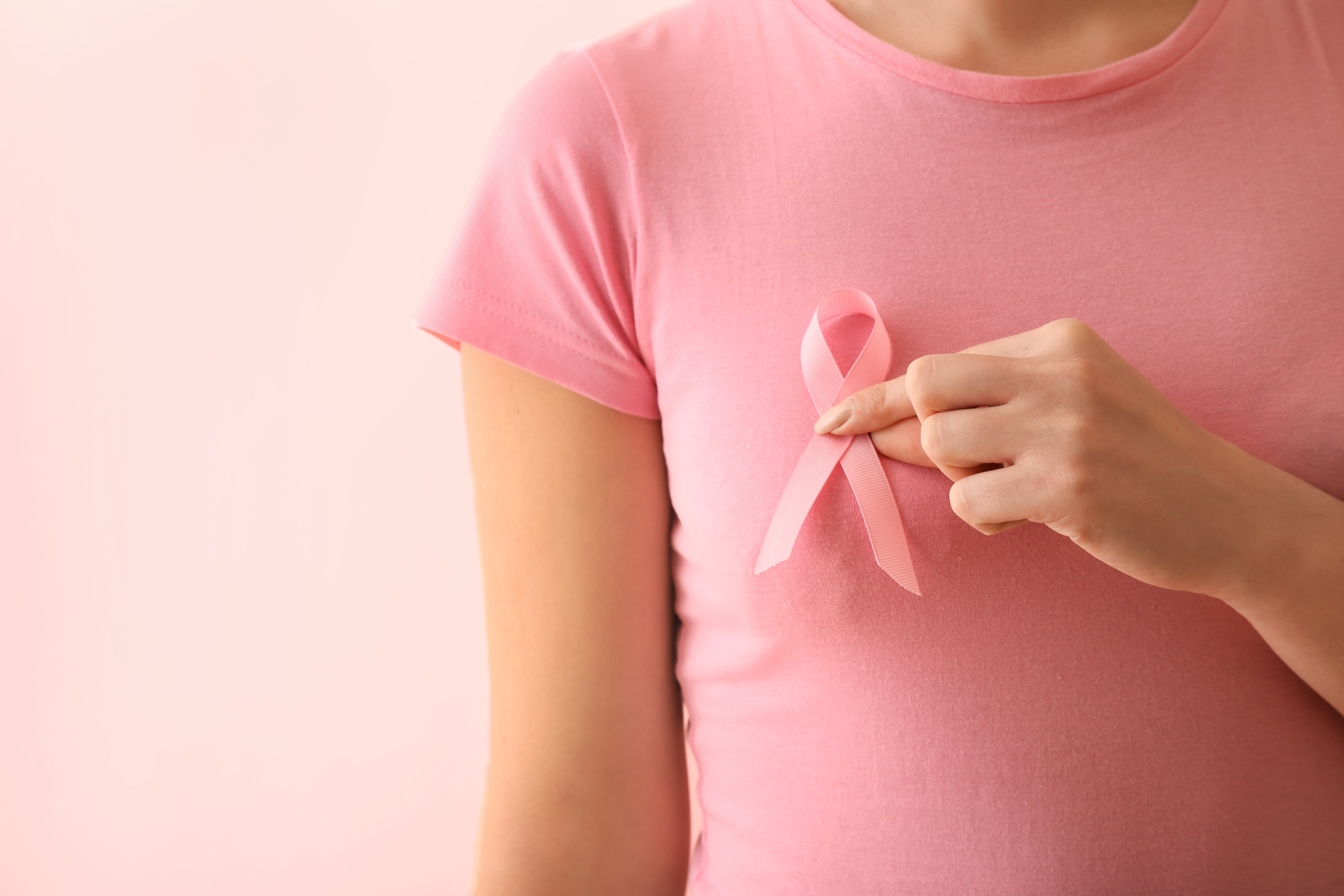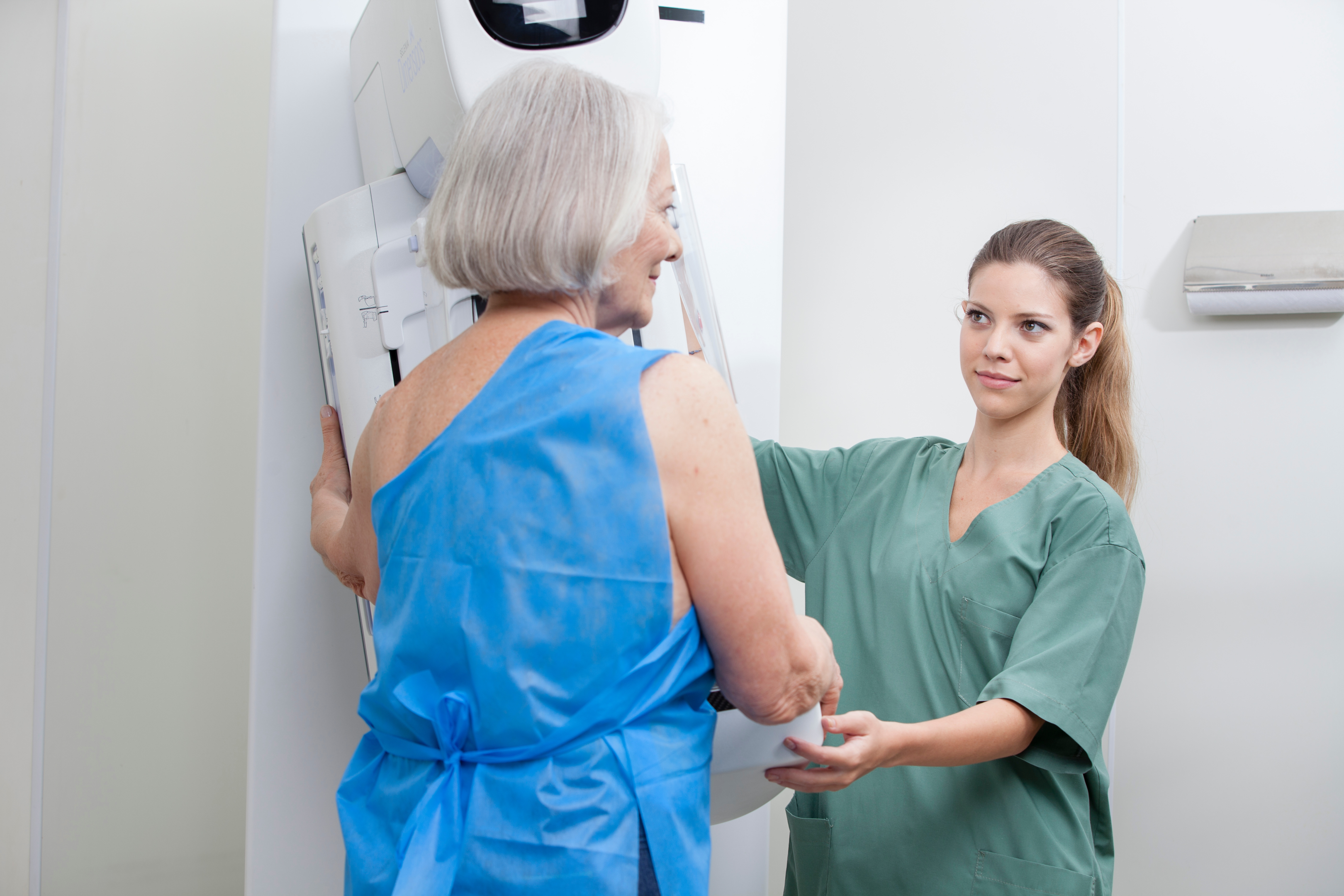
Breast cancer is one of the most common types of cancer affecting women. It is a life-threatening disease that can strike you at any age. However, breast cancer can be successfully treated in many cases if detected early.
Certain factors can increase your risk of getting breast cancer. Knowing which factors you are most at risk for in advance will help you decide if you need to get tested and screened for breast cancer more often. If you live in the Chicago suburbs, you can visit one of the VNA Health Care facilities. The medical team at VNA Health Care is here to help you check for breast cancer through examinations and screenings. Mammograms can be scheduled at VNA’s Aurora Highland Avenue location. If there is an issue, we can go over your treatment options and support you through the next steps.
In this short guide, we will explain some important things you should know about breast cancer. Learning about the risk factors and screening options can increase your chances of identifying this disease early and receiving timely treatment.
What Is Breast Cancer?
Cancer is a disease that occurs when something goes wrong inside your body’s cells and they start multiplying out of control. This leads to tumors and cancers in different parts of the body. If cancer cells start multiplying inside your breasts and forming tumors, you have breast cancer.
Cancer can originate in one or both of your breasts and can start in any part of the breast. You have a better chance of beating breast cancer if you detect it early. Without detection, the malignant cells can spread to other parts of the body, making it more complicated to treat.
Breast Cancer by the Numbers
Breast cancer is the second most common cancer found in women in the United States. (The most common cancer is skin cancer.) One in three new cancers detected each year in women is in the breast (30%).
Around 300,000 new cases of breast cancer are reported each year. As of January 2022, 3.8 million women living in the US have had cancer in their breasts at some point. Around 42,000 women die each year due to breast cancer. Men can also get this type of cancer, but it is fairly rare – around 2,400 cases are reported each year, resulting in about 500 deaths annually.
What Are Breast Cancer Risk Factors?
Infectious diseases like flu or measles have a single cause – germs like bacteria and viruses. But breast cancer is different – there is no single cause for it. Breast cancer develops when some of the cells in your breast tissue begin to malfunction or self-destruct in certain specific ways.
This damage can occur at any time, due to many things like radiation exposure, hormonal problems, genes you get from your parents, and more. All these different factors are together called breast cancer risk factors. If you have one or more risk factors, doctors may suggest you get tested more regularly.
Breast Cancer Risk Factors That Cannot Be Controlled
Age
As you get older, your risk of getting cancer increases. This risk will be higher once you reach the age of 45. Most women are asked to get annual checkups to look for signs of cancer once they are at this age.
Genes
Women born with certain genes – like BRCA1 and BRCA2 – are at higher risk of developing cancer in their breasts and ovaries. You can get blood tests to find out if you have these genes.
Dense Breasts
Women with more fatty tissue in their breasts have a lower risk of cancer. When there is more fibrous/glandular tissue in the breast and less fatty tissue, this is a condition called dense breasts. Women with dense breasts have a higher risk of getting cancer. The breasts can also get denser as you age – about 50% of women above 40 have dense breasts.
Family History
If your close female relative – mother, sister, or daughter – has had cancer, you have a higher risk of getting the same disease. The risk is also higher if any relatives on your mother’s or father’s side have had cancer in the past.
Hormones
Women get hormones when they start their periods. If you get your first period before the age of 12 or stop getting them late (after 55), your body will be exposed to hormones for a longer time than other women. This raises your risk of developing cancer.
Radiation
Female patients who had radiation treatment for other cancers (like lymphoma) have a higher risk of getting cancer in the breast tissue later in life. If your radiation treatment was before 30, the risk is increased.
Risk Factors That Can Be Controlled
The following are some lifestyle factors that can affect your risk of getting breast cancer:
- Lack of physical exercise
- Being overweight or obese, especially after menopause
- Taking any kind of hormone treatments
- Taking birth control pills
- Drinking alcohol or smoking cigarettes
- Having your first child after 30 (or never having kids)
Screening for Breast Cancer

You can use specific tests and breast exams to detect the early signs of breast cancer. This is called “screening.” There are two main methods:
- Breast Self-Exam – A simple checkup at home using your hands to feel for any unusual lumps in your breasts. If you find any lumps during these breast exams, you should schedule an appointment immediately to go see your VNA medical provider.
- Mammogram – An x-ray of the chest area used to look for any signs of lumps inside the breasts. It can help catch breast cancer very early.
Women’s healthcare specialists and gynecologic oncology doctors recommend the following guidelines for screening for breast cancer in women:
- Ages 20 to 40 – If you don’t have any high-risk factors, do a self-exam at home, at least once a month, 3–5 days after the start of your periods.
- Age 40 to 45 – You can ask your doctor to do a mammogram during your annual checkup. This is optional.
- Age 45 to 54 – Mammograms are recommended once per year.
- Age 55 and above – Mammograms are recommended at least once every two years.
Are Mammograms Free?
Without insurance, a mammogram can cost up to $300 or more. But since they can save lives by detecting breast cancer early, mammograms are typically covered by all health plans under the Affordable Care Act.
Even if you don’t have any insurance coverage, it may be possible for you to get free mammograms through the Illinois Breast and Cervical Cancer Program (IBCCP).
If the following is true in your case, you may be eligible:
- You live in Illinois
- You don’t have insurance
- Your age is between 35 and 64
Visit VNA Women’s Health Center Today
For all women’s care needs, you can rely on VNA Health Care. We provide comprehensive care services in primary medicine, women’s health care, gynecology, pregnancy care, and more.
Our OB-GYNs, Women’s Health Nurse Practitioners, and family practice providers are committed to providing compassionate care for women. We have the resources to perform a pelvic exam, pap test, mammograms, and other forms of health testing. If you are a woman in the age group of 40 to 70, or you think that you are at high risk of developing breast or pelvic cancer, visit any one of our clinics today.
VNA Health Care offers a full range of services at locations throughout Illinois, including Aurora, Bensenville, Bolingbrook, Carol Stream, Elgin, Joliet, Romeoville and Wheaton so you have convenient access to the care you deserve. If you are homebound, VNA can also provide care where you live. Make an appointment by calling (630) 892-4355 or contact us online.